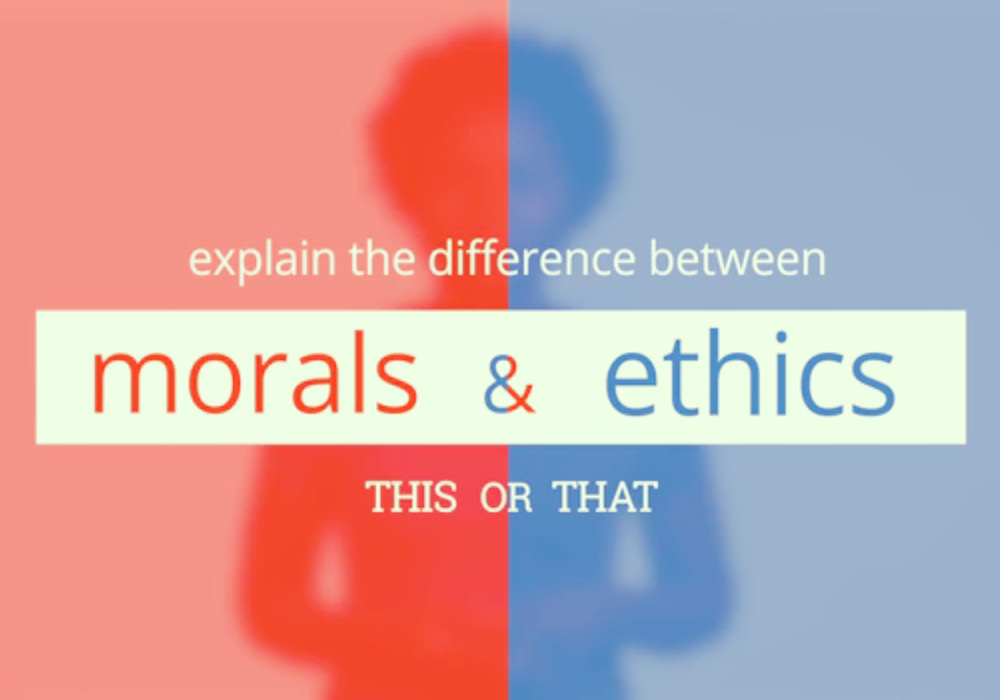I have been reading a lot concerning the philosophies on morals and ethics and find their conclusions str difficult if not impossible to objectively confirm. They often have an underlying religious agenda and lack objective evidence ro support them. This example of thr definition the justification of the philosophy is often circular justifying itself by comparing philosophies. Interesting it follows with a poll of philosophers that agree and disagree with the philosophy.
As an example lets start with Moral Realism: Moral realism - Wikipedia. Im another forum these philosophies are variably used to question science concerning what is objective or subjective.
Moral realism (also ethical realism) is the position that ethical sentences express propositions that refer to objective features of the world (that is, features independent of subjective opinion), some of which may be true to the extent that they report those features accurately. This makes moral realism a non-nihilist form of ethical cognitivism (which accepts that ethical sentences express propositions and can therefore be evaluated as true or false) with an ontological orientation, standing in opposition to all forms of moral anti-realism[1] and moral skepticism, including ethical subjectivism (which denies that moral propositions refer to objective facts), error theory (which denies that any moral propositions are true); and non-cognitivism (which denies that moral sentences express propositions at all). Within moral realism, the two main subdivisions are ethical naturalism and ethical non-naturalism.[2]
Many philosophers claim that moral realism may be dated back at least to Plato as a philosophical doctrine,[3] and that it is a fully defensible form of moral doctrine.[4] A survey from 2009 involving 3,226 respondents[5] found that 56% of philosophers accept or lean towards moral realism (28%: anti-realism; 16%: other).[6] Another study in 2020 found 62.1% accept or lean towards realism.[7] Some notable examples of robust moral realists include David Brink,[8] John McDowell, Peter Railton,[9] Geoffrey Sayre-McCord,[10] Michael Smith, Terence Cuneo,[11] Russ Shafer-Landau,[12] G. E. Moore,[13] John Finnis, Richard Boyd, Nicholas Sturgeon,[14] Thomas Nagel, Derek Parfit and Peter Singer. Norman Geras has argued that Karl Marx was a moral realist.[15] Moral realism has been studied in the various philosophical and practical applications.[16]
As an example lets start with Moral Realism: Moral realism - Wikipedia. Im another forum these philosophies are variably used to question science concerning what is objective or subjective.
Moral realism (also ethical realism) is the position that ethical sentences express propositions that refer to objective features of the world (that is, features independent of subjective opinion), some of which may be true to the extent that they report those features accurately. This makes moral realism a non-nihilist form of ethical cognitivism (which accepts that ethical sentences express propositions and can therefore be evaluated as true or false) with an ontological orientation, standing in opposition to all forms of moral anti-realism[1] and moral skepticism, including ethical subjectivism (which denies that moral propositions refer to objective facts), error theory (which denies that any moral propositions are true); and non-cognitivism (which denies that moral sentences express propositions at all). Within moral realism, the two main subdivisions are ethical naturalism and ethical non-naturalism.[2]
Many philosophers claim that moral realism may be dated back at least to Plato as a philosophical doctrine,[3] and that it is a fully defensible form of moral doctrine.[4] A survey from 2009 involving 3,226 respondents[5] found that 56% of philosophers accept or lean towards moral realism (28%: anti-realism; 16%: other).[6] Another study in 2020 found 62.1% accept or lean towards realism.[7] Some notable examples of robust moral realists include David Brink,[8] John McDowell, Peter Railton,[9] Geoffrey Sayre-McCord,[10] Michael Smith, Terence Cuneo,[11] Russ Shafer-Landau,[12] G. E. Moore,[13] John Finnis, Richard Boyd, Nicholas Sturgeon,[14] Thomas Nagel, Derek Parfit and Peter Singer. Norman Geras has argued that Karl Marx was a moral realist.[15] Moral realism has been studied in the various philosophical and practical applications.[16]

